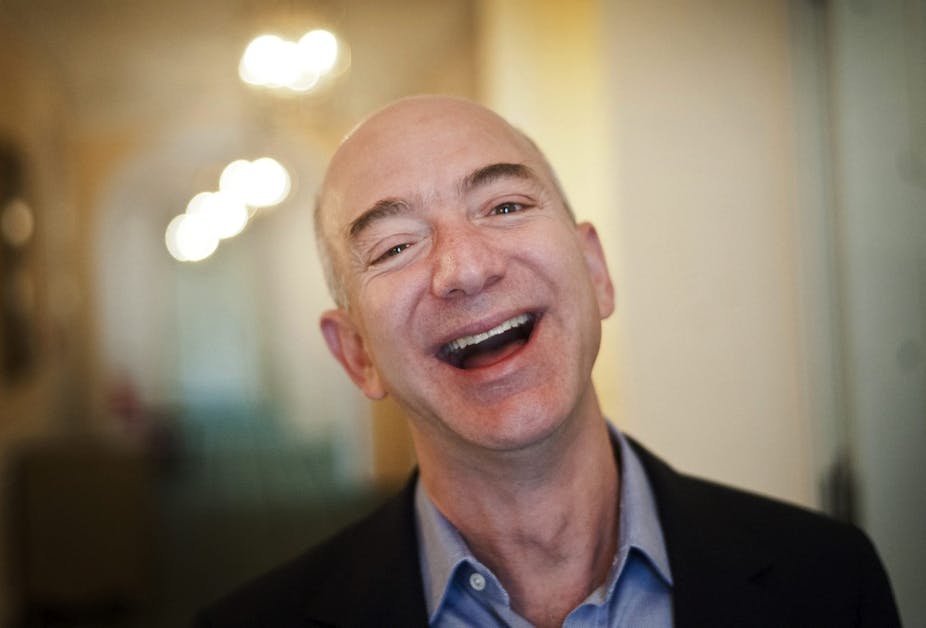In what is fast becoming a regular negotiating tactic, Amazon has halted pre-orders of DVDs and Blue-Ray discs of some Disney movies. This includes titles such as “Maleficent,” and “Captain America: The Winter Soldier”. The fight between Amazon and Disney however is really about contractual terms and follows a similar disagreement with Warner Brothers earlier this year where it stopped pre-orders of “The Lego Movie” and other titles.
The aggressive approach to negotiating terms with its partners has been honed by Amazon through its ongoing, and increasingly bitter dispute with book publisher Hachette over the price Amazon wants to charge for eBooks.
Amazon argues against collusion
According to Amazon, it is acting in the interests of the consumer and authors in its argument with Hachette. A letter, written by Amazon and posted for its eBook authors, suggests that they email the CEO of Hachette to complain about their “illegal collusion” in keeping the price of eBooks high. According to Amazon, collusion amongst book publishers is something that they have been doing for some time, even going further to suggest that authors like George Orwell, as far back as 1936, actively encouraged them to do so to stop the introduction of the paperback. Orwell didn’t actually suggest this of course.
Amazon’s reference to Orwell is really not about whether he thought that cheap books were a good thing for writers (he didn’t; in fact he suggested it was a bad thing), but is an overt appeal to Orwell’s image of anti-totalitarianism and that somehow if he had been alive today, he would have taken Amazon’s side (unlikely) in the argument against Hachette.
Amazon argues book economics
Amazon’s letter tries another approach at justifying its argument for lower eBook prices. They argue that the price of eBooks is highly “elastic” and claiming that a book will sell 1.74 times priced at $9.99 as $14.99. This means that if a book sells 100,000 copies the net revenue will be 16% more. However, this elasticity will not be uniform with many books being completely unaffected by price. If it does indeed hold, price elasticity will only work for bestsellers, of which there are precious few. Of 1.2 million books tracked by Nielsen in 2011, only 20% sold more than 100 copies. The difference between $14.99 and $9.99 is not going to be a factor in boosting sales for the majority of titles.
Amazon also claims that the price reduction is necessary because eBooks compete against apps, computer games, television and movies. This is perhaps true when people are considering gifts, but it is hard to believe that someone would start off wanting to buy a book and then decide to buy a computer game instead.
Does punishing authors and consumers really show they care?
Clearly the tactic of withholding popular items from sale to the public is not a move that has the consumer at its core. This fight is about Amazon’s ability to define the terms of business in much the same way that Apple and Google do for a range of companies that want to do business with them. The tactics employed by Amazon with its publishers probably owes more to the combative and dominating personality of Amazon’s CEO Jeff Bezos than it does about concern for the consumer. It also perhaps points to an ongoing issue that Bezos has with Amazon in its inability to actually generate much in the way of profits. Last quarter saw Amazon lose $120 million. Although investors continue to believe that Amazon will make money one day, that day has been a very long time coming.
Amazon is responsible for 65% of all eBook sales in the US and this represents 20% of all books sold in the US. It has an effective monopoly on the distribution of eBooks and so is in a very strong position to lay down the terms of how it does business. It faces a difficult task of doing this without angering its customers - although clearly it is selective about who it considers its customers are. Retailers who use Amazon’s services are oddly not worthy of the same consideration as the general retail-buying public. Amazon will also need to be careful of not raising the attention of regulators who may view its dominance and aggressive business practices as a problem.
In Hachette CEO Michael Pietsch’s reply to Amazon’s email suggestion, he has claimed that 80% of their titles are already at $9.99 or below and that the move by Amazon is all about Amazon “seeking a lot more profit”. As pointed out by the New York Times however, Amazon has simply channelled Orwell’s “1984” by insisting that it is not about money but really all for the sake of literature and the reading public.
.

